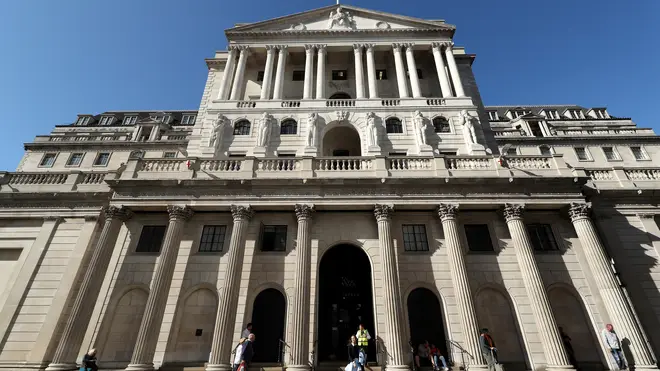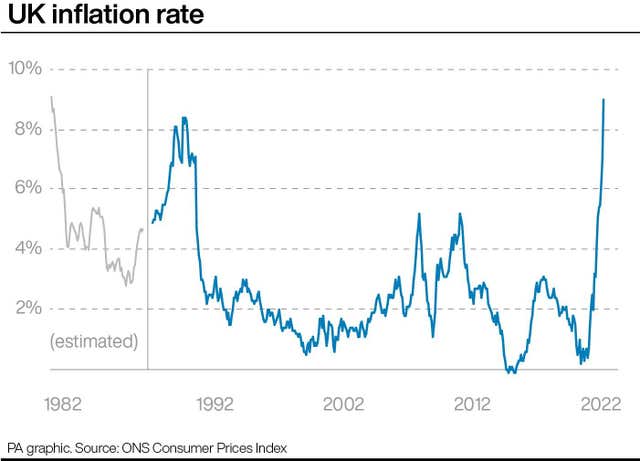
Clive Bull 1am - 4am
20 May 2022, 10:14

Huw Pill said the tightening of monetary policy ‘still has further to run’.
Interest rates might need to rise further in the future as the economy is hit by high levels of inflation, the Bank of England’s chief economist has said.
Huw Pill said the 9% inflation rate – the highest in 40 years – is a “very uncomfortable situation” for decision-makers at the Bank.
In a speech to the Association of Chartered Certified Accountants in Wales, he said the tightening of monetary policy – which means higher interest rates – “still has further to run”.
Mr Pill is a member of the Bank’s Monetary Policy Committee (MPC), which sets the base rate used to decide the interest rates charged on mortgages and other loans.
He said: “On Wednesday we learnt that UK consumer price inflation currently stands at 9%.
“The MPC forecasts that it will rise to double digits in the fourth quarter of this year.
“For a monetary policy-maker charged with achieving an inflation target of 2%, this is obviously a very uncomfortable situation.”
Earlier this month, the MPC voted to increase the base rate from 0.75% to 1%, and more rises are expected to come. Three members of the committee voted to raise rates further, to 1.25%.
Mr Pill said monetary policy is changing.

Since the financial crisis it has been in what he called “supportive mode”, but inflation and a tighter labour market are contributing towards the need to transition.
“The further increase of Bank rate to 1% should be seen as part of this transition process,” he said.
“But it is not the end of the transition. In my view, we still have some way to go in our monetary policy tightening in order to make the return of inflation to target secure.”
He said the Bank will need to take steps to bring inflation back to 2%.
“It is that commitment that has led me to support a tightening of monetary policy since I joined the committee last September, and to signal today that this tightening still has further to run,” he said.

Mr Pill said there is a danger that wages and prices will feed off each other to keep inflation high.
But at the same time, the squeeze on household incomes might hit demand and employment, which could push inflation below the Bank of England’s 2% target.
The Bank celebrated a quarter of a century as an independent institution earlier this month.
“That celebration has come at a testing time for UK monetary policy, for the reasons I have outlined in my remarks today,” Mr Pill said.
“With inflation forecast to rise into double digits following the very sharp rise in international energy and goods prices, this is the biggest challenge the MPC has faced over the past quarter of a century.”